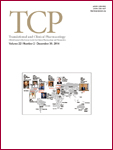
Translational and Clinical Pharmacology
Scope & Guideline
Empowering Pharmacological Insights for Tomorrow
Introduction
Aims and Scopes
- Pharmacokinetics and Drug Interactions:
A core focus of the journal is on the pharmacokinetics of various drugs, including studies on bioequivalence, drug-drug interactions, and the effects of food on drug absorption. This area is critical for optimizing dosing regimens and ensuring patient safety. - Clinical Trial Methodologies:
The journal publishes articles on advanced clinical trial designs, including adaptive trials and the incorporation of real-world data. This scope is vital for enhancing the efficiency and relevance of clinical research. - Emerging Therapies and Treatment Modalities:
Research on novel therapeutic agents and treatment strategies, including pharmacogenomics and innovative drug formulations, is frequently highlighted, reflecting the journal's commitment to advancing therapeutic options. - Regulatory Science and Innovation:
The journal emphasizes the importance of regulatory frameworks in drug development, discussing innovations in regulatory practices and guidelines that facilitate the approval and monitoring of new therapies. - Patient-Centric Research:
An increasing emphasis is placed on studies that consider patient perspectives, outcomes, and real-world evidence, aligning with trends toward personalized medicine and patient-centered care.
Trending and Emerging
- Integration of Data Science and AI:
There is a growing trend towards utilizing data science and artificial intelligence, such as machine learning and natural language processing, to enhance drug development processes and clinical trial efficiency. This reflects the increasing importance of computational methods in pharmacology. - Decentralized Clinical Trials (DCTs):
The focus on decentralized clinical trials has emerged prominently, influenced by the need for flexible and adaptive trial designs that can accommodate diverse patient populations and improve access to clinical research. - Personalized and Precision Medicine:
Research on personalized medicine, including pharmacogenomics and tailored therapeutic approaches, is increasingly emphasized. This trend aligns with the broader movement towards individualized treatment strategies based on genetic and phenotypic characteristics. - Therapeutic Innovations in Mental Health:
There is an upward trend in exploring new therapies for mental health conditions, reflecting growing recognition of mental health issues and the need for effective treatment options. - Real-World Evidence and Outcomes Research:
The integration of real-world evidence into clinical research is becoming increasingly relevant, as studies begin to focus on outcomes that matter to patients in everyday settings, beyond controlled clinical trial environments.
Declining or Waning
- Traditional Pharmacology Studies:
There seems to be a decline in purely traditional pharmacology studies that do not incorporate modern methodologies such as pharmacogenomics or machine learning. This shift indicates a move towards more integrative and advanced approaches in pharmacological research. - Case Reports and Isolated Clinical Observations:
The publication of single case reports and isolated clinical observations appears to be decreasing. This trend may reflect a preference for larger studies that provide more generalizable data and insights. - Basic Laboratory Research:
There is a noticeable reduction in articles focusing solely on basic laboratory research without direct translational implications. The journal seems to be prioritizing studies that have clear clinical applications or implications for human health.
Similar Journals

JOURNAL OF PHARMACOKINETICS AND PHARMACODYNAMICS
Unveiling the Mechanisms of Drug ActionJOURNAL OF PHARMACOKINETICS AND PHARMACODYNAMICS, published by Springer/Plenum Publishers, stands as a vital resource in the field of pharmacology. With an ISSN of 1567-567X and an E-ISSN of 1573-8744, this journal is well-regarded within the academic community, as reflected in its Q2 ranking in the 2023 Scopus category for Pharmacology. Spanning years from 1996 to 2024, it serves as a comprehensive platform for cutting-edge research on the interactions of drugs within the body, their effects, and the underlying pharmacological mechanisms. The journal provides a critical avenue for dissemination of significant research findings, with a focus on enhancing understanding in pharmacokinetics, pharmacodynamics, and their implications in therapeutic practices. Targeting an audience of researchers, professionals, and students, the journal emphasizes high-quality manuscripts that contribute to the advancement of knowledge in pharmacology. Although currently not an open access journal, it maintains a strong commitment to promoting scientific communication and collaboration.
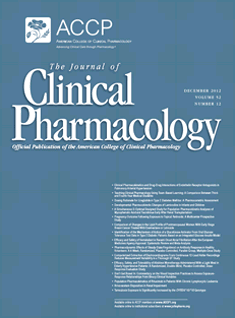
JOURNAL OF CLINICAL PHARMACOLOGY
Exploring the Frontiers of Pharmacological ResearchWelcome to the Journal of Clinical Pharmacology, an esteemed publication in the field of pharmacology and medical pharmacology, published by Wiley. Since its inception in 1973, this journal has been at the forefront of disseminating innovative research findings and comprehensive reviews that enhance our understanding of drug therapies and their clinical applications. With an impact factor that reflects its strong reputation and a Scopus ranking placing it in the 64th percentile among 272 journals in medical pharmacology, the journal stands as a critical resource for researchers, healthcare professionals, and students alike. Although currently not an Open Access journal, it provides invaluable insights into therapeutic drug use and safety, the pharmacokinetics of drugs, and the development of new therapeutic strategies. The journal's commitment to advancing the field through high-quality, peer-reviewed articles ensures it remains a vital asset in the continuously evolving landscape of clinical pharmacology.
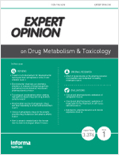
Expert Opinion on Drug Metabolism & Toxicology
Transforming Knowledge into Practice in ToxicologyExpert Opinion on Drug Metabolism & Toxicology, published by Taylor & Francis Ltd, is a leading journal in the fields of pharmacology and toxicology, with a distinguished reputation gleaned from its Q1 rankings in both disciplines as of 2023. With an ISSN of 1742-5255 and an E-ISSN of 1744-7607, this journal aims to foster innovative discussions and critical insights into the metabolism and toxicological assessment of drugs, appealing to a wide audience of researchers, professionals, and students. The journal's commitment to maintaining high academic standards is reflected in its placement within the top quartiles of the Scopus rankings—ranked 17th in Toxicology and 73rd in Pharmacology—demonstrating its significant impact and relevance in advancing knowledge within the drug development sector. Published since 2005 and converging into 2024, it provides a platform for timely dissemination of expert opinions, systematic reviews, and original research, reinforcing its vital role in shaping the future of pharmacological sciences in an ever-evolving landscape.
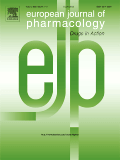
European Journal of Pharmacology
Elevating pharmacological knowledge for global healthcare progress.The European Journal of Pharmacology, a prestigious publication by Elsevier, serves as a vital resource in the field of pharmacology, offering rich insights into drug development and therapeutic applications. Since its inception in 1967, this journal has evolved to encompass groundbreaking research, including pharmacokinetics, toxicology, and innovative pharmacological methodologies, making it an essential platform for researchers and professionals alike. With an impressive impact factor that places it in the Q1 category of pharmacological journals and a Scopus ranking of #49 out of 313, the journal is recognized in the 84th percentile within its category, solidifying its significance in the academic community. Although the journal is not open access, it continues to attract contributions from leading scientists worldwide, ensuring that cutting-edge findings are disseminated effectively. The European Journal of Pharmacology not only highlights advancements in drug discovery and clinical applications but also promotes interdisciplinary collaboration, ultimately contributing to the progress of healthcare globally.
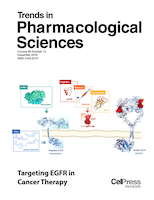
TRENDS IN PHARMACOLOGICAL SCIENCES
Pioneering Research for Tomorrow's Pharmacological ChallengesTRENDS IN PHARMACOLOGICAL SCIENCES, an esteemed journal published by CELL PRESS, is a leading platform in the field of pharmacology and toxicology, with an impressive history since its inception in 1979. With an impact factor that places it in the top quartile category (Q1) for both pharmacology and toxicology as of 2023, it is recognized for disseminating high-quality, peer-reviewed research that shapes the future of these disciplines. The journal is indexed with a robust standing in Scopus rankings, positioned at rank #2 in Toxicology and #6 in Pharmacology, both boasting an extraordinary percentile of 98. Researchers, professionals, and students benefit from its comprehensive coverage, which spans cutting-edge advancements, review articles, and significant trends in drug development and toxicity assessment. While the journal does not currently offer open access options, it remains a vital resource for the academic community, ensuring critical insights into the complexities of pharmacological sciences are readily available to enhance research and practice.

Frontiers in Pharmacology
Unlocking the potential of pharmacology through open access.Frontiers in Pharmacology, published by FRONTIERS MEDIA SA, stands as a leading open-access journal dedicated to advancing the field of pharmacology since its inception in 2010. With its ISSN 1663-9812, the journal is based in Switzerland and maintains a vital role in disseminating innovative research findings that span various disciplines within pharmacology, including pharmacokinetics, toxicology, and pharmacogenetics. In 2023, Frontiers in Pharmacology has achieved an impressive standing within the scientific community, being ranked in the Q1 category for both general and medical pharmacology, highlighting its critical contribution to the field with a Scopus ranking of #41 out of 272 in medical pharmacology and #76 out of 313 in pharmacology, toxicology, and pharmaceutics, placing it in the 75th and 85th percentiles, respectively. Researchers and practitioners benefit from its open-access model, which ensures widespread accessibility to groundbreaking research, fostering collaboration and innovation across the pharmaceutical sciences. With its commitment to excellence, Frontiers in Pharmacology serves as an essential resource for those looking to explore and contribute to the latest advancements in pharmacological research.
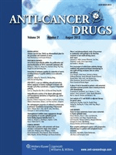
ANTI-CANCER DRUGS
Advancing the Frontiers of Cancer TherapeuticsANTI-CANCER DRUGS is a leading journal in the domain of cancer research and pharmacology, published by Lippincott Williams & Wilkins. With its inception dating back to 1990 and ongoing publication through 2024, this journal serves as a vital resource for researchers, clinicians, and students interested in the latest advancements and discoveries in cancer therapeutics. Although classified in the Q3 quartile across relevant categories such as Cancer Research and Oncology, its growing impact is evidenced by its competitive Scopus rankings, positioned within the 30th to 52nd percentiles across various disciplines. The journal remains committed to promoting innovative research that can translate into effective anti-cancer strategies, providing valuable insights into drug development and applications. While it does not currently offer open access, the journal continues to attract a sophisticated readership, making it an essential platform for disseminating significant findings in the ever-evolving field of oncology.
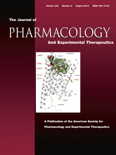
JOURNAL OF PHARMACOLOGY AND EXPERIMENTAL THERAPEUTICS
Advancing the Frontiers of Drug Discovery and TherapeuticsThe JOURNAL OF PHARMACOLOGY AND EXPERIMENTAL THERAPEUTICS, published by the American Society for Pharmacology and Experimental Therapeutics, stands as a pivotal platform in the fields of pharmacology and molecular medicine. With an impressive convergence of knowledge from 1945 to 2024, this esteemed journal is recognized for its rigorous peer-reviewed research, contributing significantly to our understanding of drug action and therapeutic interventions. It holds a commendable position in the Q2 quartile in both Molecular Medicine and Pharmacology, emphasizing its relevance and impact within the contemporary scientific landscape, as evidenced by its Scopus ranking that places it amongst the leading journals in its category. Aimed at researchers, professionals, and students, the journal not only fosters a deeper insight into toxicology, pharmacodynamics, and therapeutic strategies but also encourages innovation through its comprehensive access to groundbreaking experimental methodologies. The journal continues to foster discourse and disseminate research that shapes the future of pharmacological science.

CLINICAL PHARMACOLOGY & THERAPEUTICS
Transforming research into practice in clinical pharmacology.CLINICAL PHARMACOLOGY & THERAPEUTICS, published by WILEY, stands at the forefront of pharmacological research, serving as a pivotal resource for researchers, healthcare professionals, and students in the medical field. With its prestigious Q1 rating in both Pharmacology and Pharmacology (medical) categories, and ranking in the top 4% of journals in the field, it provides cutting-edge insights into drug therapy, pharmacokinetics, and innovative treatment strategies. The journal features a wide range of articles, from original research to comprehensive reviews, all aimed at advancing knowledge and clinical practice in pharmacology. With a publication history dating back to 1960 and continuing through 2024, its commitment to excellence is evident in its robust impact factor and high visibility in the academic community. For professionals striving to stay at the forefront of pharmacological advancements, CLINICAL PHARMACOLOGY & THERAPEUTICS remains an essential platform for disseminating and accessing vital research findings.
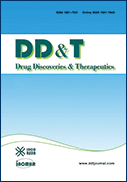
Drug Discoveries and Therapeutics
Shaping the landscape of modern medicine.Drug Discoveries and Therapeutics is a highly regarded journal devoted to the advancement of knowledge in the field of medicine and pharmacology. Published by the International Research & Cooperation Association for Biological & Socio-Sciences Advancement in Tokyo, Japan, this journal serves as a vital resource for researchers, practitioners, and students interested in the latest developments in drug discovery and therapeutic strategies. With a Scopus ranking of #192 out of 826 in the General Medicine category, and positioning itself in the 76th percentile, it demonstrates a significant impact within the scientific community. The journal publishes original research articles, reviews, and innovative studies that address the complexities of drug development, therapeutic efficacy, and clinical applications. Researchers and clinicians can access valuable insights to enhance their practices and inform further studies as it continues to disseminate crucial findings essential for the advancement of medical science.